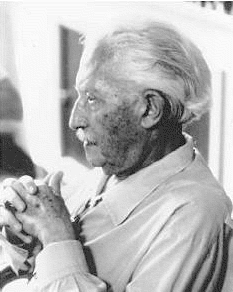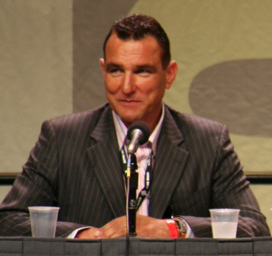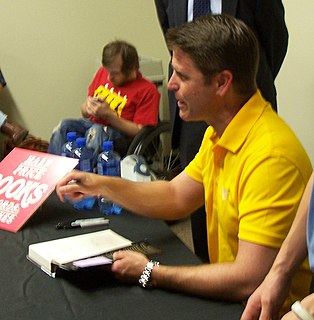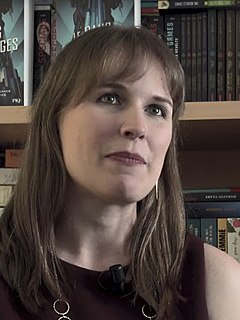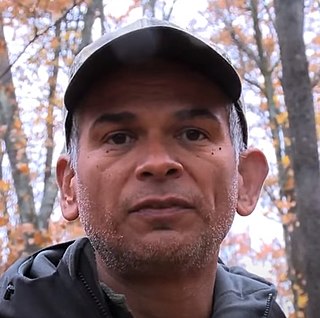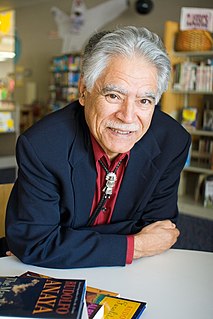Top 288 Farms Quotes & Sayings - Page 4
Explore popular Farms quotes.
Last updated on April 20, 2025.
I'm a huge supporter of animal rights - and I've been an outspoken critic of the cruelties routinely inflicted on livestock at factory farms. But it really bothers me that the mistreatment of pigs and chickens and cows seems to attract a lot more attention and spark a lot more outrage than the abuse of immigrant workers.
Factory-farm lobbyists are so powerful and so well funded and they do everything in their power to hide the truth about farming. They keep the farms and slaughterhouses in places that most people never visit; they execute huge marketing campaigns in an effort to make animal production look like a happy, nice, benign institution.
Previous generations used to eat locally out of necessity. Without options like flash-freezing and worldwide export services, communities had to rely on local farms for all of their meals. In many ways, this was beneficial. People ate fresh, seasonal foods that were naturally flavorful and nutritious, and farmers and communities prospered.
In the evaluation of the dominant moods of any historical period it is important to hold fast to the fact that there are always islands of self-sufficient order — on farms and in castles, in homes, studies, and cloisters — where sensible people manage to live relatively lusty and decent lives: as moral as they must be, as free as they may be, and as masterly as they can be. If we only knew it, this elusive arrangement is happiness.
Land ownership in Guatemala is more unequal than anywhere else in Latin America. Roughly 90 percent of Guatemalan farms are too small to support a family. A tiny group of Guatemalans owns a third of the country's arable land; more than 300,000 landless peasants must scrounge a living as best they can.
I always went to Ireland as a child. I remember trips to Dundalk, Wexford, Cork and Dublin. My gran was born in Dublin, and we had a lot of Irish friends, so we'd stay on their farms and go fishing. They were fantastic holidays - being outdoors all day and coming home to a really warm welcome in the evenings.
Nature is out there, and we can do what we like to it. We can cut down the rain forest. We can put animals in factory farms and slaughter them as we like. We can over-fish the oceans. We can pollute the rivers. We can pollute the water and change climate. We are somehow superior to nature. We are somehow rulers of nature.
YIMBYs should embrace a housing reform agenda broader than increasing urban density. This should start with ending tax shelters in the form of land conservation easements to cattle ranches and farms that abut suburbs. This would create an incentive for landowners convert them either to new housing subdivisions or to genuinely new natural areas.
I have come across a dozen studies that shows that you get more phytonutrients and more minerals and vitamins from organic, but there are also studies that show that plants raised conventionally have more phytonutrients. And they trace it to the amount of nitrogen in the fertilizer used on conventional farms. The gold standard is choosing the most nutritious varieties and raising them organically, and that's what I recommend.
Farms, whether small or large, are places where slaves are kept. The animals are fattened up to be eaten, or exploited for their ability to make honey or milk, or for their fur, wool or body parts; they are kept as breeders to produce more animals who can in turn be exploited and ultimately sold, slaughtered, and eaten.
You can't drive through Iowa and not think about farming: No less than 85 percent of the land in the state is devoted to farms, many of them more than 1,000 acres. This is the place where seeds are sown. It's where farmers grow the corn that will be fed to pigs as grain or fed to you as syrup or fermented to ethanol for your gas tank.
Before I became a full-time writer, I worked in tech support in those giant cubicle farms you see. I was surrounded by people who played video games all the time - sometimes actually in the call centers, playing online multiplayer games. I saw friends of mine who began to feel that going online was more compelling to them than real life.
While law-abiding Muslims are forced to hide in their homes, and animal-rights activists are labeled as terrorists for undercover filming of abusive treatment at factory farms, right-wing hate groups are free to organize, parade, arm themselves to the hilt and murder with chilling regularity. It’s time for our society to confront this very real threat.
Taxes are paid in the sweat of every man who labors. If those taxes are excessive, they are reflected in idle factories, in tax-sold farms, and in hordes of hungry people, tramping the streets and seeking jobs in vain. Our workers may never see a tax bill, but they pay. They pay in deductions from wages, in increased cost of what they buy, or - as now - in broad unemployment throughout the land.
With good planning, Africa can have cities, farms, factories, export processing zones. But if the political will is there, the huge areas - the Serengeti, the Okavango, the Kalahari, Kruger - these wonderful, huge places for wildlife could still be set aside and protected, and be treasures for humanity for many generations to come.
The newcomers quickly learned their way about and soon felt at home. The Homestead Act of 1862 provided them, as well as many other pioneers, with an opportunity to acquire land and establish family farms. To the land-hungry immigrants, the tough prairie sod seemed a golden opportunity and they conquered it by hard work.
A sickening howl stopped her, sucking the air out of her lungs. The night's chatter silenced, even the loitering city rats pausing to listen. Scarlet had heard wild wolves before, prowling the countryside in search of easy prey on the farms. But never had a wolf's howl send a chill down her spine like that.
I think the more prominent the actual product in its raw nature is to its final consumer, the more sympathy and likelihood they'll consume it they'll have. Some friends of mine are trying to do these rooftop farms in Brooklyn, and I love that idea. As long as they're using clean water and real soil and creating delicious things by the sun, then brilliant.
I went around to the little schoolhouses, talking like a professor, explaining our platform. We were lucky if the collection gave us enough for gas to get to the next place. We encouraged questions, and people asked us if it was true we were going to take their farms, like the Soviets in Russia, and did we believe in God.
Of course we will continue to work for cheaper electricity in the homes and on the farms of America; for better and cheaper transportation; for low interest rates; for sounder home financing; for better banking; for the regulation of security issues; for reciprocal trade among nations and for the wiping out of slums. And my friends, for all of these we have only begun to fight.
In the summer of 1966, I went to Mississippi to be in the heart of the civil-rights movement, helping people who had been thrown off the farms or taken off the welfare roles for registering to vote. While working there, I met the civil-rights lawyer I later married - we became an interracial couple.
Cows that are fed organic food are still kept as slaves on farms, regardless of whether it is a large corporate factory farm or a small family farm. Besides, every dairy cow, no matter what she has been fed, has her babies stolen from her shortly after birth and she will inevitably end up in the slaughterhouse.
Throughout the late '80s, me and a handful of friends just like you people here, we started to break windows, we started to slash tires, we started to rescue animals from factory farms and vivisection breeders, and we graduated to breaking into laboratories . As long as we emptied the labs of animals, they were still easily replaced. So that's when the ALF in this country, and my cell, started engaging in arson.
Oh land of farms and green hills mild Once formed by giants rough and wild With massive paws they gripped and tore With one great rip they formed the shore Where heavy boots left prints so deep Blue lakes remain 'tween summits steep The giants fought beneath our skies And from their bones our mountains rise
Here above the farms and ranches of the Great Plains aviation lives up to the promise that inspired dreamers through the ages. Here you are truly separate from the earth, at least for a little while, removed from the cares and concerns that occupy you on the ground. This separation from the earth is more than symbolic, more than a physical removal - it has an emotional dimension as tangible as the wood, fabric, and steel that has transported you aloft.
Food production has affected the environment more than any other activity humans have engaged in. Humanity devotes more land to food production than anything else - roughly a third of the surface area of the earth, much of which was once forest but has been converted by humans into farms or grazing lands.
All great questions must be raised by great voices, and the greatest voice is the voice of the people - speaking out - in prose, or painting or poetry or music; speaking out - in homes and halls, streets and farms, courts and cafes - let that voice speak and the stillness you hear will be the gratitude of mankind.
In the US in the 1900's 60 % of people were employed on the farms. Today it's less than 1%. If you told people back then that this would happen they wouldn't have believed it. If you told them we would have therapy, massages and spas that played important parts in our lives they would've have believed us.
A lot of environmental and biological science depends on technology to progress. Partly I'm talking about massive server farms that help people crunch genetic data - or atmospheric data. But I also mean the scientific collaborations that the Internet makes possible, where scientists in India and Africa can work with people in Europe and the Americas to come up with solutions to what are, after all, global problems.
Remember that as a vegan, you save dozens of animals every year from the horrors of factory farms, which is great. And when you convince one person to also become vegan, in that moment you double your lifetime impact as a vegan! That's power - and we should use it as effectively as possible. Check out the 'Be a better advocate' videos and essays at www.FarmSanctuary.org.
When you take away the subsistence economy, then your farm population is seriously exposed to the vagaries of the larger economy. As it used to be, the subsistence economy carried people through the hard times, and what you might call the housewife's economy of cream and eggs often held these farms and their families together.
The biggest thing right now, is supporting the people who take care of the environment. We must take care of the people who take care of the land. And so, if 20% of the population is in school, and they are asked to buy this food from farms. I mean at the real cost without a middleman, it could be amazing. It could change farming overnight.
In general, I avoided giving lectures or attaching myself while abroad to a university. To learn what I wanted to know, I went instead to rural communities and onto actual farms. Talk with university people, government officials and U.S. personnel stationed in the country was much less rewarding for me.
When I was twenty-one, a friend gave me a book called Diet for a New America by John Robbins, which exposed the brutal practices of American factory farms. That, coupled with a lecture from Leonardo DiCaprio (when he was nineteen and I was twenty-one) about how such animals are kept and processed, made me lose my desire for factory farm pork and beef right there.






